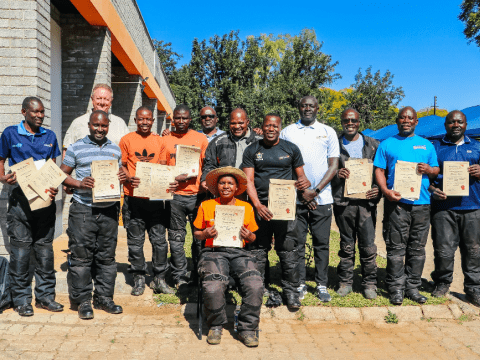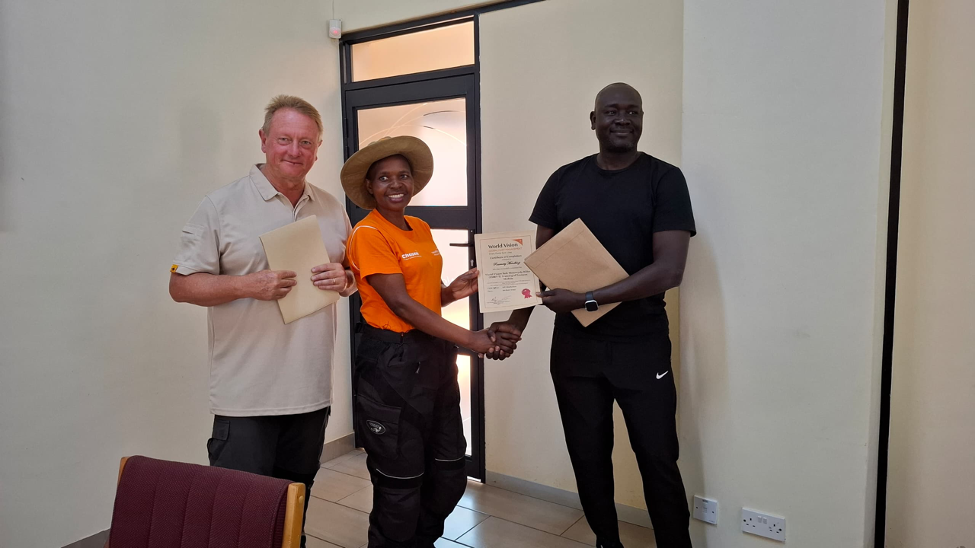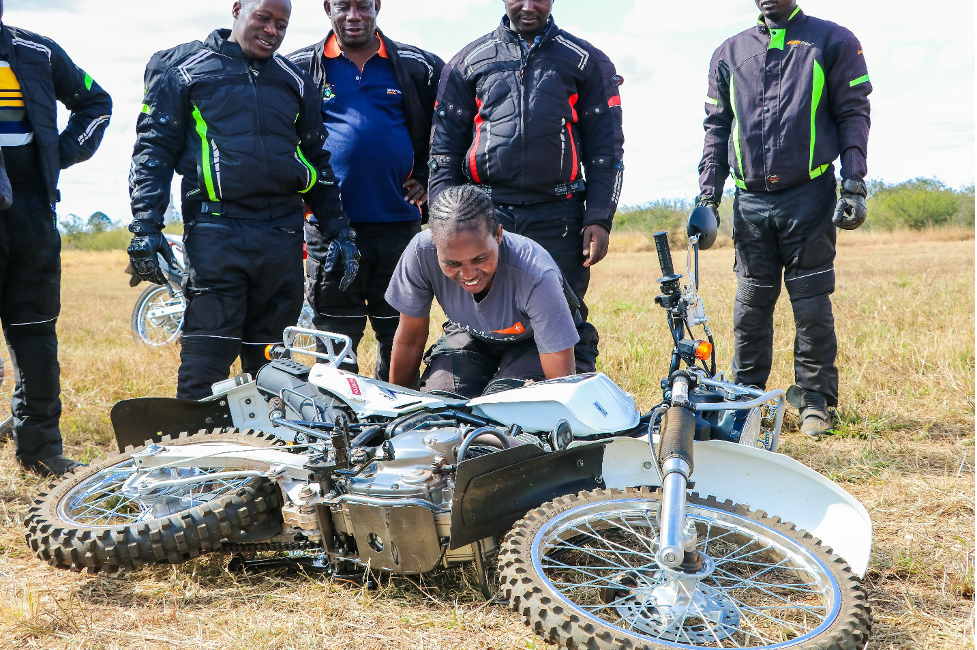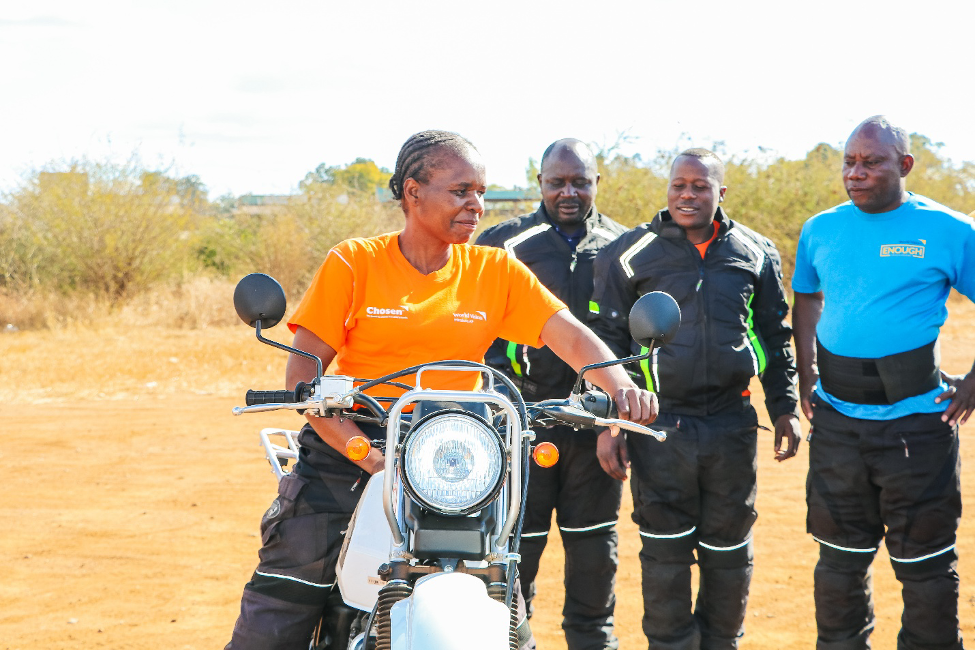Breaking Boundaries on Two Wheels: Rosemary’s Trailblazing Journey in Chimanimani

By Isheunesu Gwasha (Program Communications Officer)
In the misty, rugged terrain of Chimanimani District, few roads are paved, and even fewer are easy to navigate. But for Rosemary, fondly known as Rose, a Community Development Worker (CDW) stationed in the Mhakwe Operational Area, the challenges of reaching vulnerable communities are simply part of her daily mission. What sets her apart is not only her unwavering commitment to development work but also her courage to defy stereotypes, most recently by being the only female participant at the Global Fleet Bikers' Training held in Bulawayo, Zimbabwe.
Out of a cohort of ten trainees from across Zimbabwe, Rose stood out, not just for her gender, but for her unmatched skill and determination on the motorcycle.
“At first, when I saw the line-up of male participants, I felt the weight of expectations on my shoulders,” Rose recalled with a smile. “But I reminded myself that I have been riding for 11 years, not to compete, but to serve. This training was another way for me to sharpen my skills and keep communities connected.”
Rose, who learned to ride a motorcycle over a decade ago when she first joined World Vision Zimbabwe, has used the skill to access some of the most remote villages in Chimanimani, often braving treacherous roads and rivers to deliver aid, monitor progress, and build resilience among children and families. Her participation in the Global Fleet training was not only a personal achievement but also a statement of resilience and representation for women in development work.

Benjamin, the Global Fleet Safety Advisor, was one of the lead trainers at the workshop in Bulawayo and could not hide his admiration for Rose.
“Rose was outstanding, technically sharp, focused, and fearless. She handled the motorcycle better than most of the male trainees. Her balance, braking, and manoeuvring on rough terrain were textbook perfect. But what impressed me the most was her humility and determination. She broke barriers quietly, but powerfully,” he said.
Throughout the training, Rose not only completed every module, but also motivated her male counterparts, many of whom had never expected a woman to outperform them in what is often perceived as a masculine skill.
Michael Muzenda, a fellow CDW from the Mbire-Muzarabani Cluster, was one of those trainees. He remembers the moment his perception shifted:
“Honestly, I came in with a bit of bias. I thought the bikes were too heavy and the terrain too rough for a woman. But Rose humbled us all. She was not just keeping up, she was leading. Watching her tackle the hardest parts of the course gave me a new level of respect, not just for her, but for every woman who chooses to challenge limits.”

For Rose, the training was more than a certificate, it was a moment of pride and a call to action for others.
“I want to inspire more women to step up. Riding a motorbike does not take away our femininity. It adds to our strength, our independence, and our reach, especially in humanitarian work. If we can ride to save lives, educate a child, or protect a mother, then we should be empowered to do it fearlessly.”
Back in Chimanimani, Rose continues to ride, with a sharper skillset, renewed confidence and a trail of inspiration in her wake. She hopes to mentor other riders within World Vision and encourage them to see a motorcycle not just as transport, but as empowerment.

As the sun rises over the Eastern Highlands, it often catches a glint of metal on the winding paths of Mhakwe and more often than not, it’s Rose on her bike, pushing forward, breaking barriers, and reminding everyone that strength has no gender.